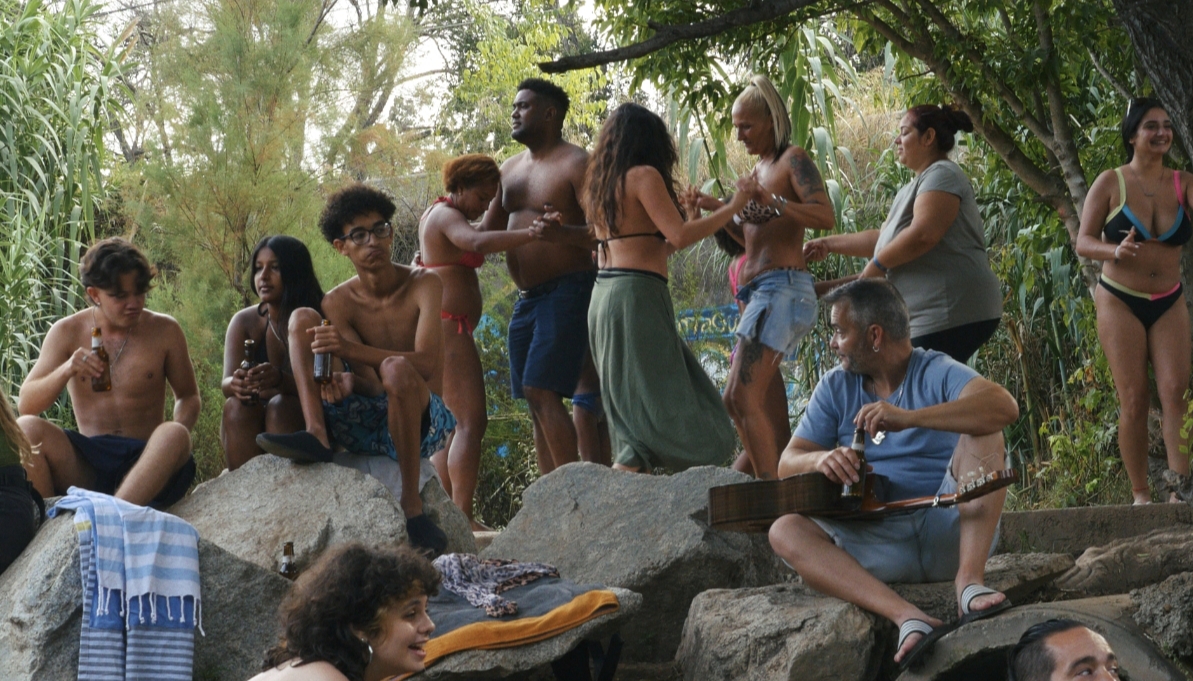Good Valley Stories
Historias del buen valle
VERDICT: The authenticity and good humor in José Luis Guerin's documentary 'Good Valley Stories' won it the Special Jury Award at San Sebastian.
“I can only make films from a position of love,” said the Spanish director José Luis Guerin at his San Sebastian press conference. And that love permeates every one of the 122 minutes of his documentary Good Valley Stories, premiering in competition at the festival.
Commissioned by the Madrid Museum of Contemporary Art to make a short film, Guerin became so involved with the Vallbon neighborhood, the focus of the project, that he worked on the film until its release three years later. It is a mosaic of stories about Vallbon (Good Valley in Catalan) on the outskirts of Barcelona, and its inhabitants. The settlement has existed since the Middle Ages. Small houses were built at the beginning of the 20th century, and new buildings have appeared in recent years. A sign on the screen says “People from the south have begun to arrive.” South of what? We wonder. Well, the south of Spain at first, then from the economic south, the area that migrants and refugees come from. It is home to Catalans (some own the original houses), Andalusians, Portuguese, Moroccans, Indians, Ukrainians, Russians, and Roma from various countries.
Vallbon was always considered rural and retains that character to this day with a stream that forms a pond, small family gardens, plants and flowers. The documentary begins with a sequence filmed in black and white Super 8, accompanied by a solitary trumpet. Then volunteers are filmed in natural color, telling their stories like talking heads against a monochrome background. Then, as if we had become friends, we begin to follow them in their daily lives.
José Luis Guerin is a gifted storyteller able to shift from fiction (En la ciudad de Silvia) to documentary (Innisfree, En construcción) and back again. He is also a respectful filmmaker. He shows us only public spaces, never bedrooms, and only those conversations the subjects wish to share. At a funeral, we hear the chorus but not the eulogy.
These stories break many prejudices and stereotypes. The first is the association of low income with sadness. In this neighborhood, there is laughter, dancing, and music of many styles, including classical. Another prejudice overturned is the association of cosmopolitanism with urbanity. In Vallbon there are as many languages spoken as in Madrid; children are fluent in at least two without being taught in school.
But this is not an oasis of modern life. The problems are the same as anywhere, from climate change and bullying to unplanned urban development. But the sense of community, tolerance for diversity, and the coexistence of generations make the inhabitants of Vallbon feel privileged. The audience is lucky to watch such an optimistic and authentic film in this dark moment.
A technical stand-out is the complex sound design. There is no gratuitous music and after the opening trumpet, every sound comes from the residents: music, singing, conversations, and silences.
The editing, by the director, makes the narrative entertaining without being superficial, which will make it palatable to diverse audiences.
Director, screenplay, editing: José Luis Guerin
Producers: Javier Lafuente, Jonás Trueba, José Luis Guerin, Gaelle Jones
Cinematography: Alicia Almiñana
Music: Anahit Simonian
Sound: Maximiliano Martínez, Pablo Rivas Leyva
Art direction: Clara Serrano
Production companies: Orfeo Iluso AIE (Spain), Los Ilusos Films (Spain) in association with Perspective Films (France)
World sales: Shellac (France)
Venue: San Sebastian Film Festival (Competition)
Running time: 122 min.
In Spanish, Portuguese, Arabic, Russian and Ukranian.

